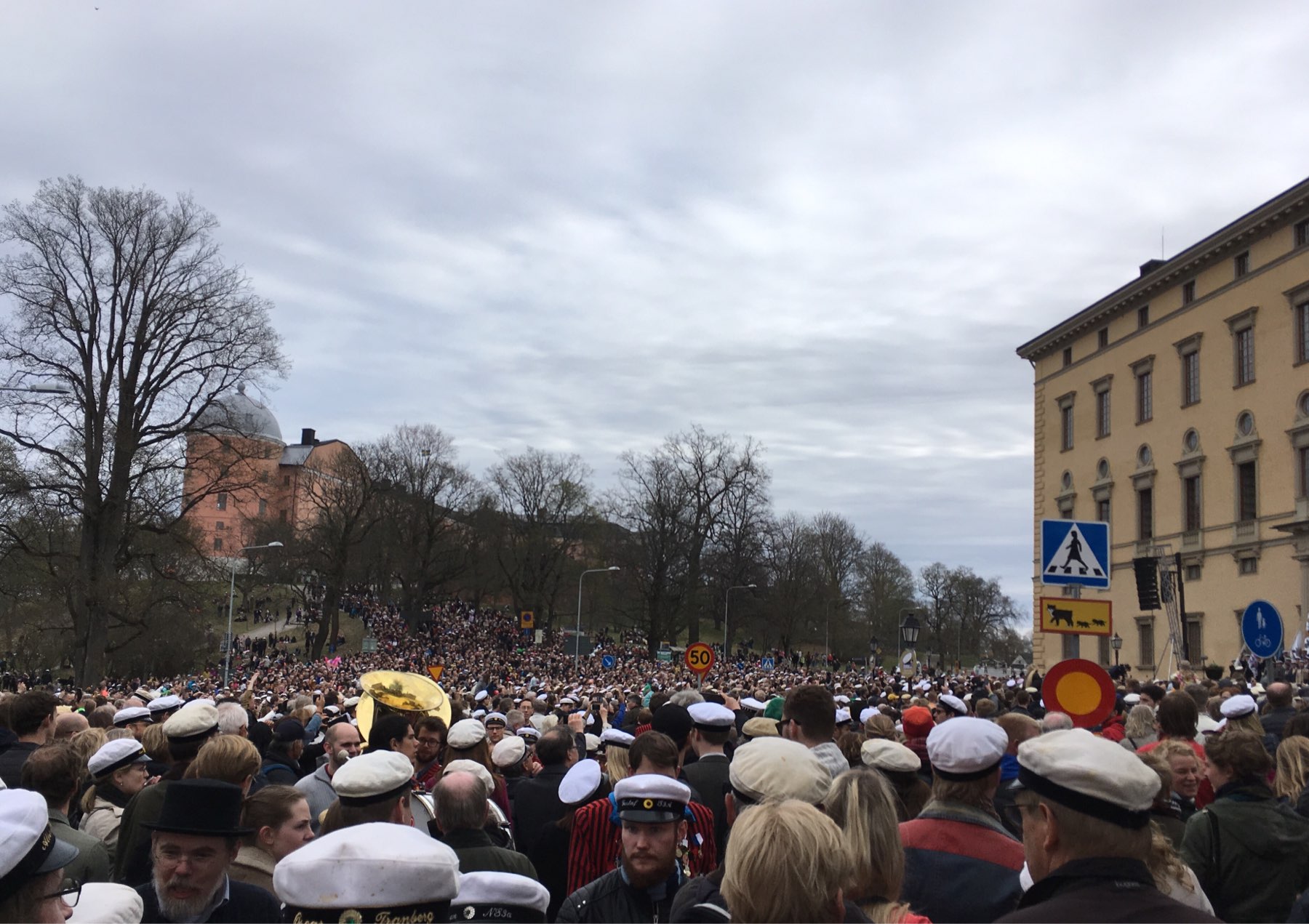Meet Adam “the author of Moral sentiments and Wealth of nations”. In that order!

“Yes, of course, we’re fucked. (Though it’s important to specify the “we” in this formulation, because the global poor, the disenfranchised, the young, and the yet-to-be-born are certifiably far more fucked than such affluent, white, middle-aged Americans as Vollmann and myself.)” (Wen Stephenson)
“In 1999, in the Journal of Personality and Social Psychology, my then graduate student Justin Kruger and I published a paper that documented how, in many areas of life, incompetent people do not recognize — scratch that, cannot recognize — just how incompetent they are, a phenomenon that has come to be known as the Dunning-Kruger effect. Logic itself almost demands this lack of self-insight: For poor performers to recognize their ineptitude would require them to possess the very expertise they lack. To know how skilled or unskilled you are at using the rules of grammar, for instance, you must have a good working knowledge of those rules, an impossibility among the incompetent. Poor performers — and we are all poor performers at some things — fail to see the flaws in their thinking or the answers they lack.”
“Unlike the typical Hollywood CGI depictions of asteroid impacts, where an extraterrestrial charcoal briquette gently smolders across the sky, in the Yucatan it would have been a pleasant day one second and the world was already over by the next. As the asteroid collided with the earth, in the sky above it where there should have been air, the rock had punched a hole of outer space vacuum in the atmosphere. As the heavens rushed in to close this hole, enormous volumes of earth were expelled into orbit and beyond — all within a second or two of impact.“
After a month+ of Mediterranean weather, a cold midsummer was probably inevitable. At least, it did not rain when we danced “Små grodorna”.
I have not read Pinker’s latest book but if it continues the arguments of his previous I find most of the critique against it misplaced. I think Rosling said it best when he argued something along the lines of ‘just because something is better this does not mean it is good, or even satisfactory’. What I take away from people like Pinker and Rosling is not that the world is perfect (that would be absurd given the current state of things) but that “we” (in the widest possible sense) clearly are doing something right. To me it is nonsensical to argue that the world used to be better in the past. Yes, of course, there are exceptions but these exceptions is not (if they are exceptions) a convincing argument against the more general change. If given a fair chance to review the choices I believe most people would like their children to grow up now, rather than at almost any other time throughout human history. And yes, there may also be problems with “the facts” and even some cherry picked statistics. But if this criticism isn’t backed up by “better” statistics, which can refute the argument that, on the whole, the world seems to be a better place today than it was in the past, well, then why should we listen to these critics? Let’s not confuse “ought to” and “could be” with “is”, because then we are not even talking about the same thing.
“With an eye on the current political situations in the US, Turkey, Russia, and China, Cass Sunstein reviews three books that shed light on how the Nazis came to power in Germany in the 1930s […]
‘Mayer’s most stunning conclusion is that with one partial exception (the teacher), none of his subjects “saw Nazism as we — you and I — saw it in any respect.” Where most of us understand Nazism as a form of tyranny, Mayer’s subjects “did not know before 1933 that Nazism was evil. They did not know between 1933 and 1945 that it was evil. And they do not know it now.” Seven years after the war, they looked back on the period from 1933 to 1939 as the best time of their lives.’ (Mayer, 1955)”
(Kottke)
“The result was a two-thirds majority: 66.4% yes to 33.6% no.
By voting yes in unexpectedly large numbers to abolish the eighth amendment to the Irish constitution, the country has enabled the government in Dublin to introduce abortion in Ireland’s health service up to 12 weeks into pregnancy.”
Today a sparrowhawk landed on the lowest branch on the tree nearest me, about 1.5 meter from where I was standing, and looked me right in the eyes before taking flight again. I am sure this would have had some profound meaning, had I lived a couple of hundred years ago. Now I am afraid that I am a little uncertain as of how to interpret this omen. Cool encounter nonetheless.
“Homer’s Greek warriors probably didn’t look much like David Gyasi, but nor did they look like Brad Pitt. […] The final irony is that the ancient Greeks, so often thought of in Europe and North America as self-evidently white, would have been staggered at this suggestion.“
Have had a slight headache ever since we came to the summerhouse for the (extended) weekend. Turns out, the instant coffee I have been drinking (as if that wasn’t bad enough) is caffeine free. The horror!
“Yaniv Leviathan, Google Duplex lead, and Matan Kalman, engineering manager on the project, enjoying a meal booked through a call from Duplex.
Duplex calling to book the above meal:”
Valborg again. Noticeably less people in town this year. Carolinabacken at three o’clock was however crammed as usual.

Great week for imaginary Pink Floyd album covers. pic.twitter.com/bdxkcBv2uu
— Roman Volobuev (@romanvolobuev) April 27, 2018
In the spring of 1997—five years after this video was made—I lived at the very south end of Brick Lane in Attlee House at Toynbee Hall, as an exchange student attending London Guildhall University. At least once a week, late at night when everything else was closed, we sent a party of volunteers (the hungriest among us, I imagine) all the way to the other end of Brick Lane to get bagels. ‘Always open’ was a rare thing at the border between the city and the east end in those days. (And, yes, salmon and cream cheese was my favourite too.)